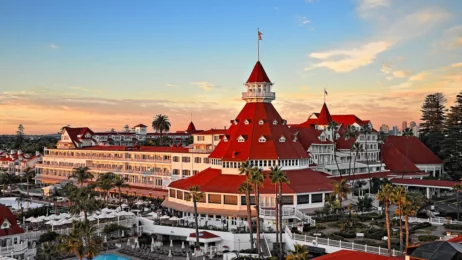They may try to mask it, but hoteliers are concerned about the rise of Airbnb.
Despite calm, cool statements by C-level members of the hotel and hospitality industry meant to brush aside concerns about Airbnb encroaching on their business, a new report shows that the San Francisco-based startup had a negative impact on New York City’s hotel industry from September 2014 through August 2015.
The report, conducted by HVS Consulting & Valuation and commissioned by the Hotel Association of New York City, estimates Airbnb’s impact at $2.1 billion. In New York City alone, Airbnb accounted for 2.9 million (7.8 percent) of overnight stays, and generated $451 million in gross revenue (a number expected to jump to $805.3 million in 2018).
“This study not only confirms that Airbnb’s operations in New York City have a negative impact on the hotel industry, but it also details the tremendous disruptive reach Airbnb has on the broader city economy and our communities,” says Vijay Dandapani, chairman of the Hotel Association of New York City.
Outside of direct loss of room nights, Airbnb’s total impact on NYC also includes estimated losses of $88.9 million on hotel F&B, $76.5 million in lodging taxes and $1 billion in construction.
Of course, much of that money is still going into the city’s economy, just in different places. Visitors are still eating, just not as much in hotel restaurants. Airbnb hosts still have to claim income from renting out their spaces, which is taxed by the city. There have been no reports on how Airbnb hosts spend their extra income made with the service, but it’s fair to say that some of it ends up back in the local economy. Also, comments from those C-level folks about how their hotels and Airbnb cater to different demographics would indicate that Airbnb is bringing in visitors who wouldn’t be booking those overnight stays if hotels were their only options.
In fact, some cities recognize the potential for the sharing economy to bring in more tourism dollars and have partnered with Airbnb.
“The growth of the sharing economy has generated new visitor demands for creative lodging and transportation options around the world. San Francisco is excited to be the first destination to formalize a relationship in this exciting new space,” says Joe D’Alessandro, president and CEO of San Francisco Travel, referring to a partnership that includes shared marketing of the destination, including San Francisco Travel’s “local list” of neighborhood hot spots for Airbnb renters.
On the other side of the coin, San Francisco is voting tomorrow on Proposition F, which would limit private rentals to 75 nights per year.
The PR and legal jostling is likely just beginning, and smartmeetings.com keep you posted as events develop.
Update: On Nov. 3, San Francisco voters rejected Proposition F (as expected) by a vote of 55% to 45% (though that’s a bit closer than many thought), with about 133,000 votes cast.




